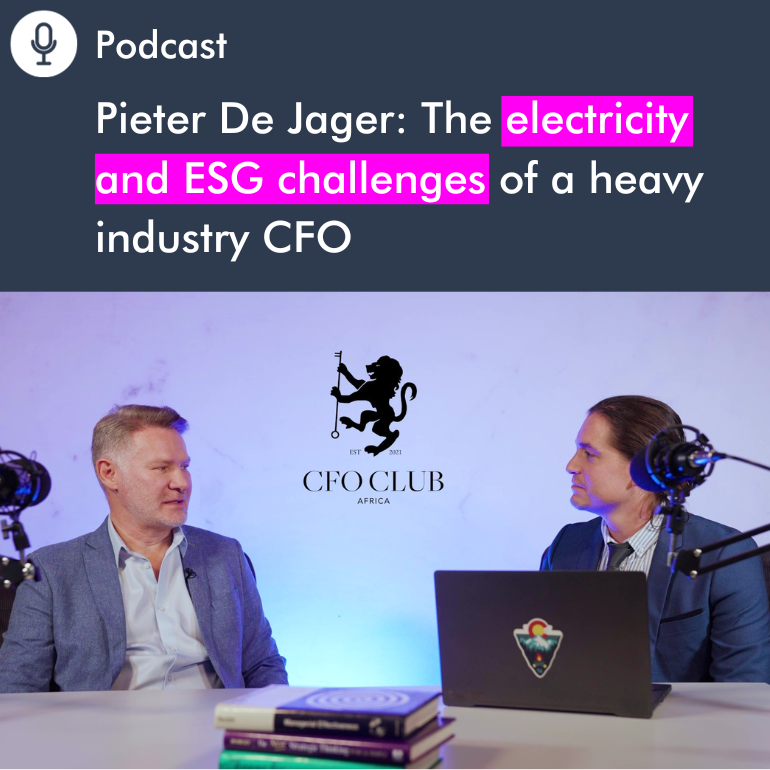Pieter De Jager: The electricity and ESG challenges of a heavy industry CFO
Written by: Leigh Schaller
Pieter de Jager explains how managing the short-term needs of heavy industry – to keep production churning – and a long-term shift to greener energy can leave CFOs caught between cement and a hard place.
Pieter de Jager is the CFO of Tanzanian-based Tanga Cement. He recently spoke to the CFOClub podcast about the challenges of ensuring his company has a steady electricity supply while considering ESG reporting.
The instability and shortage of electricity is an Africa-wide problem, and the geopolitical situation in Europe compounds this issue, says De Jager. Almost half of Tanzania’s electricity supply comes from hydropower, leaving it vulnerable to climate issues.
Cooperation and planning are key
“It helps to engage with the government and the local utility electricity provider and hear their plans. We often also [take our] top engineers, electrical engineers to the meetings to hear to have a round table debate [which is] healthy and not pointing fingers,” says De Jager.
During electricity shortages, authorities may ask heavy industry to curb their use. This is where it’s critical to have plans in place.
“Your systems need to be ready internally to shut down on short notice,” says De Jager. This is challenging in a heavy industry environment. “You need to empty the lines, whatever you’re making in heavy industry.”
Getting the right mix
From a CFO perspective, electricity challenges are multifaceted.
“We are looking at solar options. It is now globally becoming a focal point. It is still a very expensive option, and you are probably looking at 15, 20 or 25-year contracts with power-producing partners. You need land for it, and you need extensive licensing. So you have to do your research in country [you’re operating in],” says De Jager.
It’s not possible to rely exclusively on solar for heavy industry applications. “The smaller production units – conveyors and light industry stuff – [can run on solar], but for heavy kilns, crushers and the like, which is also very prominent in mining, one has to have on-site diesel generation capacity,” says De Jager.
“One would immediately frown at me when I speak about diesel generation, but it is the only short-term solution for most heavy industries to supplement supply from the utility.
“The solar issue is a very long-term decision. The capital outlay is exponentially more than with diesel generation, but is required. So, it’s important to put clean energy in your mix. One could also start looking at biofuels for the generators. If natural gas is available, it’s an easy conversion, but that is still not considered sustainable.”
Between a rock and a concrete place
“Shareholders are, and I might generalise, very investment and dividend-focused, and not so much on the ESG side. But one has to take a longer view because how sustainable will you be if you do not bring clean energy into the mix over the longer term?”
But De Jager also has to worry about institutional investors and financiers.
“The large institutional investors are sending us regular questionnaires. They may have invested in heavy carbon-intensive industry ten or 20 years ago. . .But, their fund mandates have changed as the global focus towards ESG has migrated. We then find ourselves under a lot of pressure to make sure that these institutional investors stay with us

